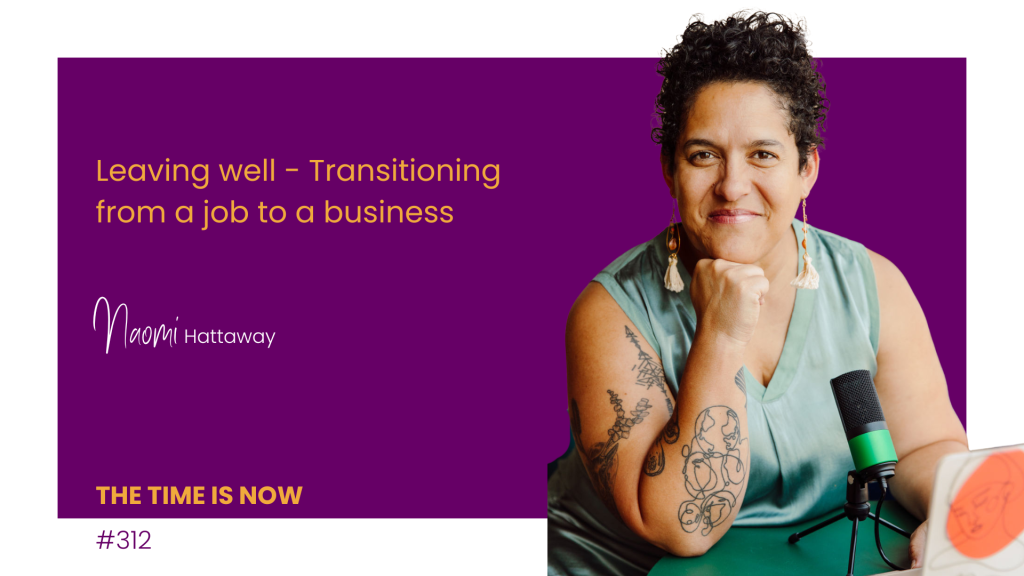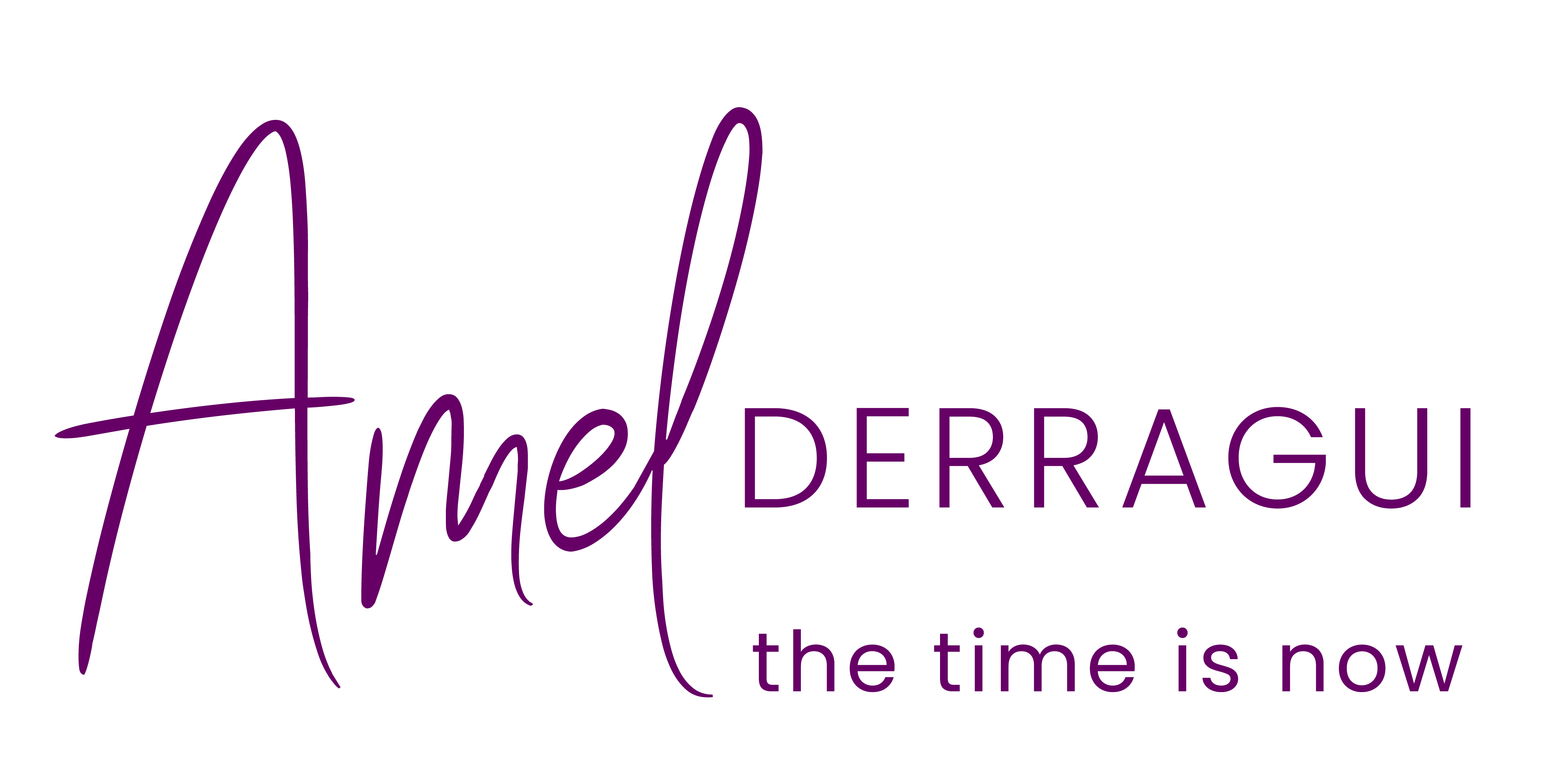Leaving well – Transitioning from a job to a business – with Naomi Hattaway

Listen on your podcast app:
Resources Of This Episode:
- Download Naomi’s guide to prepare your transition effectively: Click here.
- Take the quiz to know what your workplace transition archetype is: Click here.
If you are considering leaving your current position to start a business, doing it intentionally and mindfully is key to assuring that you put all the chances on your side for a successful transition.
Change is different from transition. With transition we have control over how we decide to show up.
In this episode, Naomi shares with you how to prepare effectively this transition, show up as a true leader towards the team you will leave behind, and ask for what you need to begin this new chapter of your career with confidence and alignment with your values.
Naomi Hattaway is the author of the book and host of the podcast Leaving Well. She is an expert guide to organizations and individuals who are ready to do better when it comes to navigating workplace transitions. Through her Leaving Well framework, she offers clarity, tools and practices that stick, and guidance that supports a diverse client portfolio.
What you will learn:
- Different types of transition when leaving a job to start a business
- Intentional actions to show up as a true leader towards the team and the peers you leave
- Tips to set the right expectations and effectively communicate your needs to your management
Other resources and inspiration:
- Take the quiz to know what your workplace transition archetype is: Click here.
- Past interviews with Naomi Hattaway:
Find Naomi online
Enjoyed this episode? Please leave a review
Please leave a review or a comment to help me reach more people who need to hear this. Choose your favorite podcast app:
Transcript
organizations and individuals who are ready to do better when it comes to navigating workplace transitions.
[:[:[:[:[:[:[:[:[:So we're gonna talk about that. But there is something to what you do here, which has all to do with leaving well, which also in other ways I see it as transitioning. Well, but it's interesting when you look at your journey, 'cause I think that's also interesting to maybe start with that there is a red thread.
[:[:[:[:[:[:[:e I I launched this business [:[:[:[:[:[:[:[:[:[:[:[:[:[:[:[:[:[:[:[:[:[:[:[:[:[:[:[:[:[:[:u have about those different [:[:[:[:[:[:[:good idea. Managers. Have so have a hard job. Mm-Hmm. And there's, there's not a lot of managers that are great at their jobs. And so one of the things that they, they don't tend to do well is check in with their staff or their employees to see how they're doing.
[:[:[:[:[:[:[:were originally hired for, that you haven't had time for. Or maybe you are asking your manager to explore things that weren't on the job description, but that you've noticed need to be done.
[:[:[:[:[:[:[:[:comfortable with the way that they left.
[:[:[:[:[:[:[:[:[:[:[:[:[:[:[:[:[:[:[:[:[:[:[:[:[:[:[:[:[:[:[:[:[:[:[:[:[:[:[:[:[:[:[:[:[:[:[:[:[:will ask you for the link to that as well. Naomi, would we be able to share that on the show notes?
[:[:[:[:[:[:[:[:[:[:[:[:
